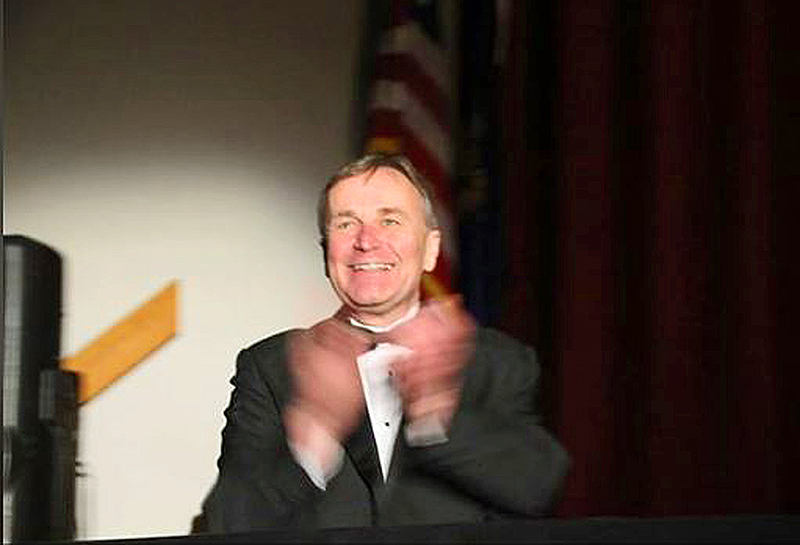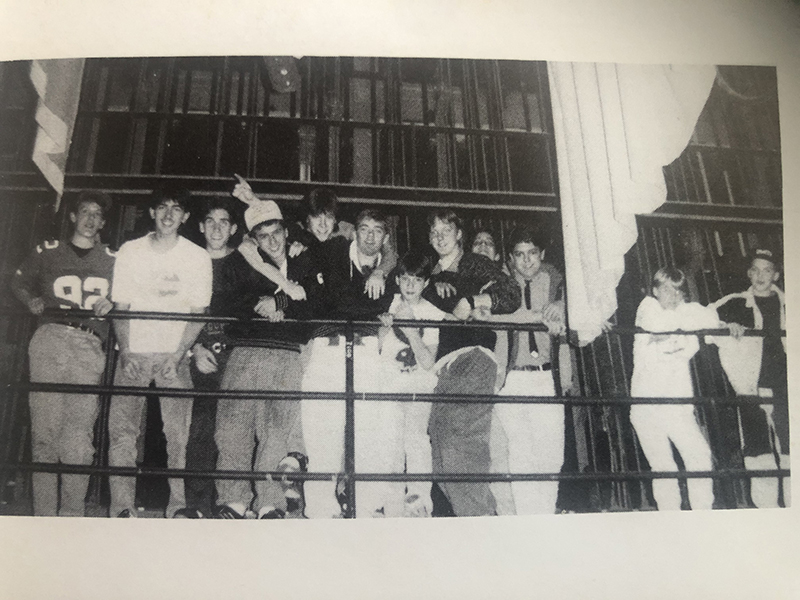
Hi, I’m Mike Graham, product manager at Chauvet Professional. That’s how I’ve introduced just about every product, Tech Talk, and tradeshow overview video I have done over the past 14 years at Chauvet. I’m really proud of the work I’ve done in that time, and look forward to a lot more in the future. But this isn’t about that. This is about not only how I got started, but how most people in the industry first got their feet wet. This is about the high school musical and how important it has been in the lives of many.
A Breath of Fresh Air
So, setting the Wayback Machine to 1992, I was a senior at Holley High School in Holley, NY. We got a new biology teacher, and with that, a new director for the spring play. Up till then, running lights was just another way to get me out of classes during the day and have something to keep me busy at night. I always enjoyed it, but I never thought of it as a career move. Enter Dan Burke. Mr. Burke was a breath of fresh air to an otherwise unremarkable theatrical experience. Up to this point, it was pretty much lights up, lights down and repeat. I had lit the previous year’s show pretty well, and I was all set to do the same lights up, lights down for this year’s show, but then I had my first meeting with the new guy. He was actually excited to talk to me and actually spoke to me in a way that made me want to do more than just push faders. He made me want to create looks and add an emotional flair to the show. He explained his vision for the show and challenged me to light it accordingly. Mr. Burke not only directed the show, but he also directed the pit band as well. Kind of a big undertaking in any theatrical environment, but in a small town high school with a really shallow talent pool, it must have been near impossible, but he made it happen. He showed me that if you apply yourself and show that application, people will follow you.
After 28 years of making it happen, Mr. Burke is retiring this year, and he is leaving some big shoes to fill. Over that 28-year span, Mr. Burke and his sister, Kellie, have worked together to put the school musicals on, and along the way, have helped to shape the lives of so many. In the course of a week after Mr. Burke announced his retirement, one of the alumni started a Facebook group and managed to grow it to over 1,000 people (as a note, my graduating class was 62 students, including the foreign exchange students) sharing their memories and experiences with the shows and how they impacted their lives. So many people referenced how being involved in the shows helped to bring them out of their shells and have something to look forward to beyond just the day to day. Some spoke about how they spent the year looking forward to being involved in the productions, while others talked about how what they learned during the productions over the years helped them in their careers. Several others directly attributed their participation in the school musicals, myself included, with shaping their future.
Reading the posts got me to thinking about how we are introduced to the arts and how we become involved in something that is bigger than we are as individuals. We all know what it takes to put on a show and how much individual responsibility it takes to make it successful. Learning these skills early on is essential to being a well-rounded individual. It forces us to work not only on a team (actors, technicians, stagehands, musicians, designers), but it also forces us to work with people who are not on your team. It forces us to express ideas to each other and make it make sense. For most kids, this is probably the first time they have had to ever work in teams like this, and it’s a great time to learn some life lessons that most people outside of theater won’t learn for a long time.
I decided to take a bigger look back at what people’s biggest takeaways were from their high school theatrical experiences. I did a simple post in the Facebook group, “Everything Stage Lighting” which, when used correctly, can be very useful. I asked, “For those of you who started in the wonderful world of stage lighting in high school, what was your biggest takeaway from that experience that helped shape your career?” After letting that sit out there for about 24 hours, I had 94 comments, and most of them were great
answers. A lot of the answers related to learning to work with what is in front of you which, for many of us, is a hard lesson to learn. Other answers had to do with working with people, and the fact that in a perfect world, which theater typically tries to be, we can learn from one another and contribute to a finished product. My favorites had to do with learning that it was unacceptable to be late, always giving your absolute best, asking lots of questions, and not touching things that don’t belong to you.

Cultivating Culture
For a lot of people, especially in small towns, their first experience with live performance as an audience member, a performer or technician is in school-based theater programs. This is something that isn’t lost on me. I grew up quite literally surrounded by farm towns. While there is nothing wrong with that, there isn’t a whole lot of cultural experiences that are within biking distance. Having a school that actually brought culture in is important to the community as a whole. Our little town took the shows we put on pretty seriously. Our stage crew didn’t just do the spring musicals, we did every show that came through. This included dance recitals, school band/choir recitals and the occasional outside show would come in. This is where I learned that everything is important to someone, so you better do your best to make it look good.
High school musicals are a great way for people to get into this business and get a little practical background. With the right level of mentorship and an open mind, kids can see if they have an aptitude for this business and have a little fun along the way. Some of the best among us started out in student-run shows at the school level. It’s a great and safe way to get involved and start learning the process. We need more mentors out there like Mr. Burke to let the next generation know it’s okay to get involved in school shows and that no one is going to make fun of you for doing it, and even if they do, so what?


